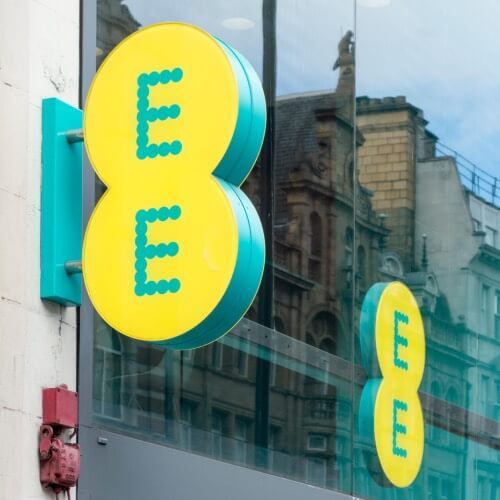EE jumps onto the diversification trail
Telcos are looking to bundle a widening range of services with traditional connectivity offerings, but it's not yet certain how these strategies will play out.

UK-based EE has become the latest telco to branch out into other industries as part of efforts to diversify its service offering and, all being well, boost ARPU and overall subscriber numbers. The BT-owned mobile operator recently partnered with security service providers Verisure and Norton and is now offering home security and cybersecurity packages to its customers.
What's more, EE indicated that these security partnerships are the "first of a new wave of agreements" that will allow EE customers to "buy exciting services beyond connectivity" as part of their monthly bill, although some would perhaps question the use of the adjective "exciting" to describe insurance. Indeed, reports suggest that EE will soon extend its insurance product portfolio to cover cars and travel.
Partnering with insurance providers for security and other products is certainly nothing new in the telco space. Operators including Proximus (Axa), Telecom Italia (TIM myBroker works with multiple partners) and Plus Poland (ERGO Hestia) have done the same, while device insurance services have become ubiquitous.
Figure 1:  Telcos are looking to bundle a widening range of services with traditional connectivity offerings, but it's not yet certain how these strategies will play out.
Telcos are looking to bundle a widening range of services with traditional connectivity offerings, but it's not yet certain how these strategies will play out.
(Source: CAMimage/Alamy Stock Photo)
It remains to be seen whether or not EE and other operators will fully embrace the diversification model that is increasingly prevalent in Spain, for example. Here, both Telefónica's Movistar and Másmovíl offer a broad range of services that complement their traditional connectivity offerings. Vodafone Spain also sells alarm services in collaboration with Securitas, while Orange Spain has launched Orange Bank and sells insurance services.
Following a trend
It is notable that EE intends to combine bills for the new services into one, suggesting a convergence play, possibly one akin to Movistar's recently launched miMovistar offering, is afoot.
Movistar offers financial and insurance services, as well as telemedicine services under Movistar Salud, device insurance under Seguro Dispositivos and connected car services via Movistar Car. From April this year, it has allowed customers to combine these non-traditional services with mobile, home broadband and TV offerings under miMovistar.
More services could be added to the miMovistar line-up over time, such as those provided by two Movistar joint ventures. Earlier this year, the operator tied with Spanish energy company Repsol in the field of solar photovoltaic panels, creating the Solar360 venture. In March 2020, it established Movistar Prosegur Alarmas in collaboration with Prosegur to sell home security alarm services.
Meanwhile, Másmovíl, which is set to merge with Orange Spain should regulatory approval be secured, sells energy services under several brands while sub-brand Yoigo offers a growing range of adjacent services. These include EnergyGO green energy products, the DoctorGO app, HomeGO smart home alarm services, SafeGO digital security, MoneyGO payments and the Next Smart Car device for in-car connectivity.
The question is, how successful are these diversification strategies likely to be, and how much value will they add to the operator business in future? In an increasingly competitive environment, will they really help operators carve out stronger positions over time as they seek new revenue streams and greater stickiness among users? Perhaps more to the point is what would convince customers to buy such services from the operators as opposed to others.
Want to know more? Sign up to get our dedicated newsletters direct to your inbox.
Dario Talmesio, research director at Light Reading sister company Omdia, noted that to date, it's fair to say that "communication service providers' expansion in adjacent consumer services has only worked with one business model and one service category: the business model is bundling, and the service category is entertainment."
Talmesio further noted that even for areas that should be straightforward and close to the core of the telecoms business, such as consumer finance and smartphone insurance, "CSPs have had it tough: there are plenty of options out there, more than ever."
"CSPs are partnering with established brands rather than building their services, which is the right thing to do for most of them, but what do they bring to the table? Distribution, marketing dollars, customer touch points, and billing are good assets to bring to the mix, but these are neither sufficient nor unique," he said.
Banking on success
It's probably too early to say how many of these diversification strategies will shape up, although there is some evidence that some are already in danger of falling flat. Orange's venture into banking in both France and Spain has not gone smoothly, it's fair to say, although banking is certainly not the easiest industry to tackle. Reports last month suggested the loss-making banking arm is up for sale.
Prosegur tends to report figures for Movistar Prosegur Alarmas, meanwhile. In the first half of 2022, the insurance group said the venture had almost doubled the number of connections since March 2020, from 211,000 to 406,000, despite the pandemic.
As for the operators themselves, they are of course adopting a bullish stance. For example, in its Q2 results announcement Telefónica said miMovistar was gaining traction and indicated that the portfolio had gained a "good reception." It noted that customers of the new portfolio account for more than 10% of the convergent customer base.
Másmovíl continues to assert that the use of its different brands, including Yoigo, Pepephone, Llamaya, Lebara, Lyca, Guuk, Euskaltel, Telecable, R and Virgin "with tailored value propositions and sales channels" allows the group to "adequately address" different customer segments.
Related posts:
— Anne Morris, contributing editor, special to Light Reading
Read more about:
EuropeAbout the Author(s)
You May Also Like











